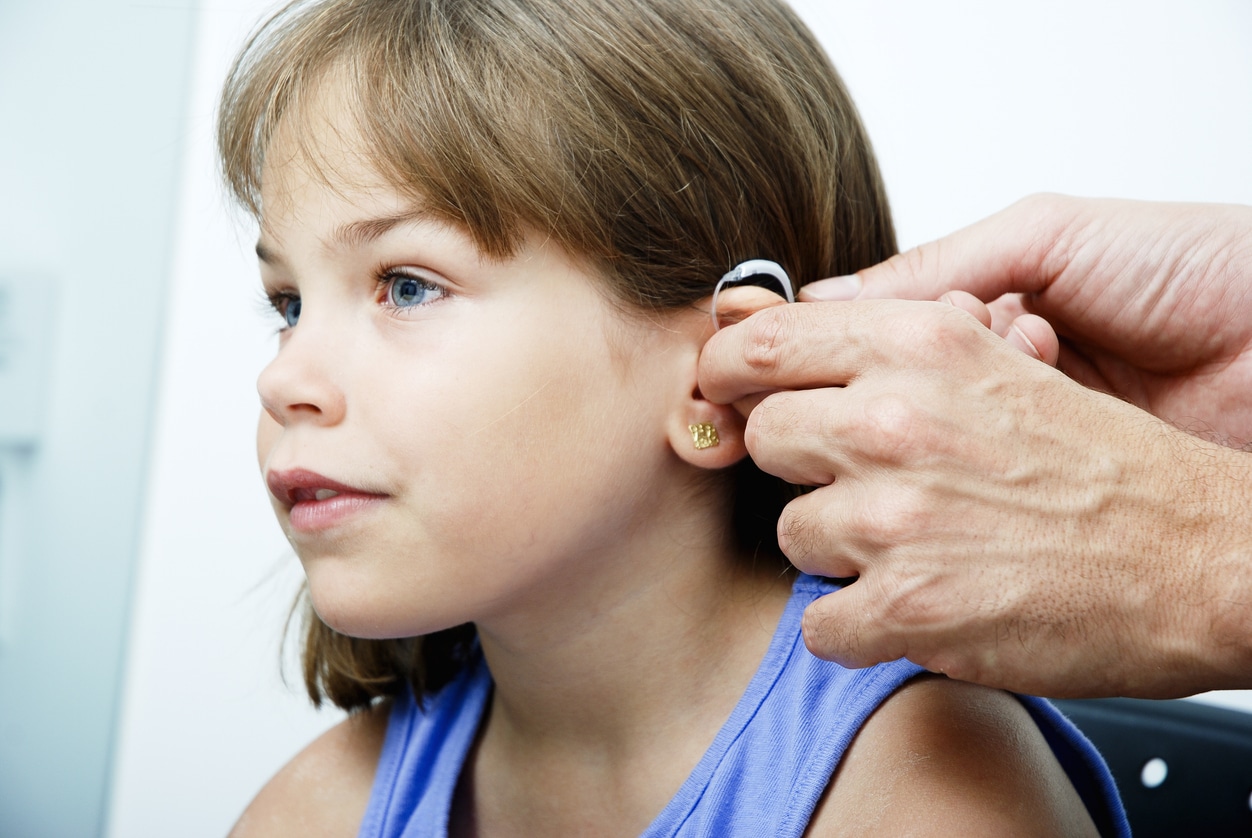Newborn hearing screenings identify most cases of hearing loss early on, but some forms of hearing loss may develop later due to genetic factors or progressive conditions. Here are some signs to watch for in infants, toddlers and older children to help ensure timely diagnosis and treatment.
Hearing Loss Indicators in Infants and Toddlers

Infants and toddlers experience rapid development, reaching new milestones frequently. Tracking hearing and speech milestones is essential to monitoring their progress and identifying any potential hearing issues.
General Milestones to Watch For:
- 0 to 3 Months:
- Startles or reacts to loud sounds
- Begins cooing sounds
- Recognizes and responds to a parent’s voice
- Shows response when spoken to
- 6 to 9 Months:
- Reacts to speech sounds and familiar voices
- Turns their head toward interesting sounds
- Laughs and experiments with vocal sounds
- Varies tone to express emotions like joy or discomfort
- Begins understanding simple words, like “mommy” or “daddy”
- 1 to 2 Years:
- Vocabulary grows steadily, adding more words each month
- Can ask basic two-word questions, like “What’s that?”
- Follows simple instructions or commands
- Can identify simple objects and body parts when prompted
- Enjoys listening to stories or songs
These milestones provide general guidelines, but every child develops at their own pace. Delayed achievement of these milestones doesn’t automatically indicate a problem. However, if you have concerns, scheduling an evaluation can help provide peace of mind.
Signs of Hearing Loss in Older Children
In older children, identifying hearing loss can be more challenging, as they may have developed ways to cope with hearing difficulties. Here are some signs to watch for:
- Difficulty with following instructions: Trouble understanding simple directions, like “Pick up your toy.”
- Speech and language delays: Falling behind in verbal skills or struggling in language-based subjects at school.
- Frustration or confusion with instructions: Easily becomes frustrated or appears confused, especially when given multi-step instructions.
- Reliance on visual cues: Needs to be looking directly at you to understand what’s being said.
- Fatigue or social struggles: Often seems unusually tired after school, has trouble keeping up with classmates or experiences challenges making friends or keeping up academically.
Hearing challenges often impact a child’s school performance, making it difficult for them to fully engage in class or keep up with peers. If you notice any of these signs in your child, consider arranging a hearing evaluation.
Contact Advanced Hearing to schedule a hearing test today.


